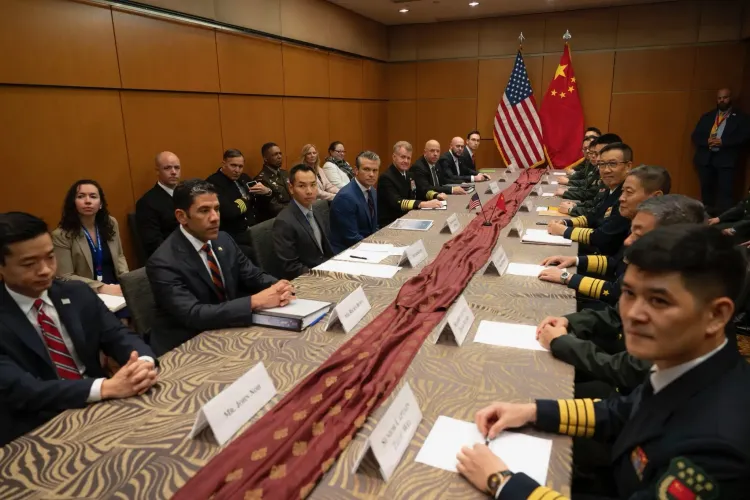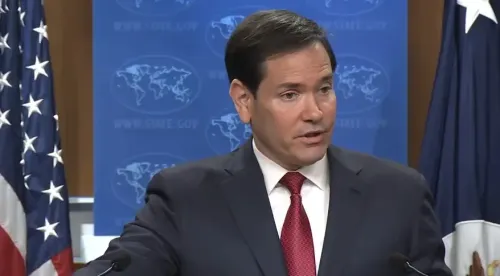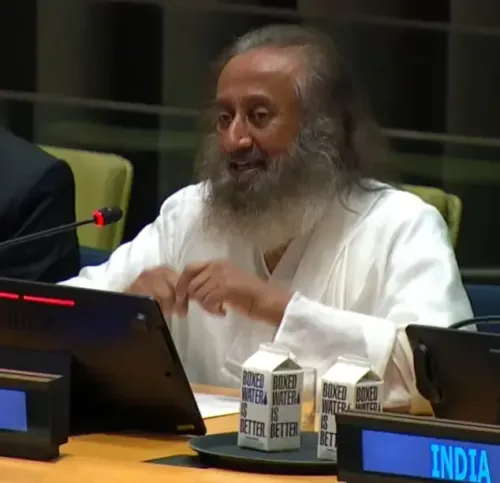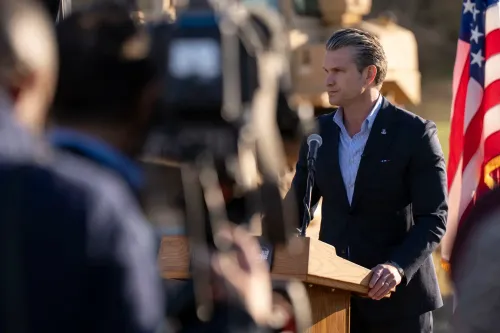What Are Hegseth's Serious Concerns About Beijing's Actions?

Synopsis
Key Takeaways
- US concerns about China's military activities are growing.
- Dialogue between US and Chinese defense officials is crucial.
- Maintaining a balance of power in the Indo-Pacific is a priority.
- US positions on Taiwan remain unchanged.
- Regional security threats are described as severe and urgent.
Kuala Lumpur, Oct 31 (NationPress) US Defence Secretary Pete Hegseth raised serious concerns regarding China's maneuvers in the South China Sea, near Taiwan, and towards its regional allies during his inaugural face-to-face discussions with his Chinese counterpart in Kuala Lumpur on Friday, as reported by the Pentagon.
In the meeting with Chinese Defence Minister Dong Jun at a security forum, Hegseth reiterated that the United States aims to avoid conflict but will strongly protect its interests in the Indo-Pacific, which he has identified as America's priority theater.
The two leaders convened on the sidelines of the Association of Southeast Asian Nations (ASEAN) Defence Ministers' Meeting-Plus, just a day after US President Donald Trump and Chinese President Xi Jinping reached a temporary trade truce during their discussions in South Korea, where Trump also issued an unexpected directive to commence nuclear weapons testing.
According to the Pentagon readout, Secretary Hegseth emphasized the necessity of maintaining a balance of power in the Indo-Pacific region, voicing significant US concerns about China's actions in the South China Sea, around Taiwan, and in relation to US allies and partners.
He stated, “While the United States does not seek conflict, it will continue to robustly defend its interests and ensure it possesses the necessary capabilities in the region to do so.”
Later in a press availability, Hegseth characterized his meeting with Dong as constructive and candid, according to Yonhap News Agency.
He remarked, “It’s crucial for military-to-military relations to be strong. The tone has been set at the highest levels, with President Trump engaging positively with Chairman Xi (Jinping), and I believe we should mirror that.”
When asked about Taiwan, he reaffirmed that the US stance on the matter remains unchanged.
In September, during their first phone call, Hegseth conveyed to Dong that the US is not looking for conflict with China, nor is it pursuing regime change or attempting to isolate China, while underscoring that the US holds vital interests in the Asia-Pacific that it will firmly protect.
In meetings with new Japanese Defence Minister Shinjiro Koizumi in Tokyo, Hegseth described the regional security threats as severe and urgent, pointing to China's unprecedented military buildup and aggressive military actions.
At a defence forum in Singapore in May, Hegseth presented China as a real and potentially imminent threat, urging Asian allies to enhance their defence spending.










